Overview
If
you’ve ever forgotten a password and none of the usual tricks work to
get you back into your Windows box, then a boot CD like Hiren is a must.
Of all the things that you can do with this boot disc none is as useful
as making admin accounts. What this means is that if you have physical
access to a machine then there is nothing to prevent you from gaining
administrative access.
You can download the ISO for Hiren at https://www.hirensbootcd.org/download. This article presumes you already know how to create a boot disc from and ISO image and can boot to it. If you’ve never used the Hiren Boot CD before then do yourself a favour and try it. It is an indispensable tool in any technician’s bag of tricks.
1) After booting the disc, select the mini XP option. Once your at the desktop click on the wrench icon in the notification area and navigate to Pass Renew. The path is: Passwords/Keys-Windows Login- Password Renew.
You can download the ISO for Hiren at https://www.hirensbootcd.org/download. This article presumes you already know how to create a boot disc from and ISO image and can boot to it. If you’ve never used the Hiren Boot CD before then do yourself a favour and try it. It is an indispensable tool in any technician’s bag of tricks.
1) After booting the disc, select the mini XP option. Once your at the desktop click on the wrench icon in the notification area and navigate to Pass Renew. The path is: Passwords/Keys-Windows Login- Password Renew.
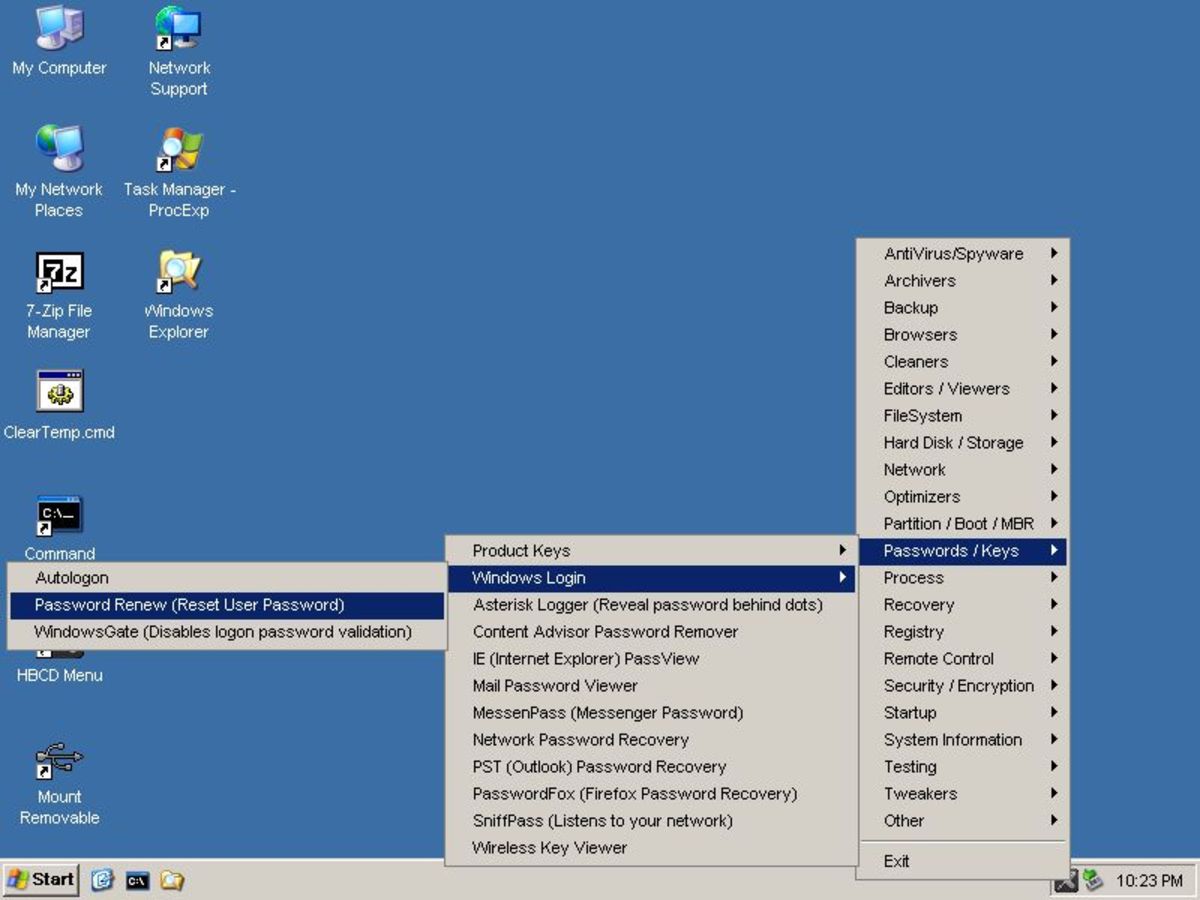
2)
At the Pass Renew screen click on “Select Target” in the lower right.
Then browse to the Windows folder on the local hard drive.
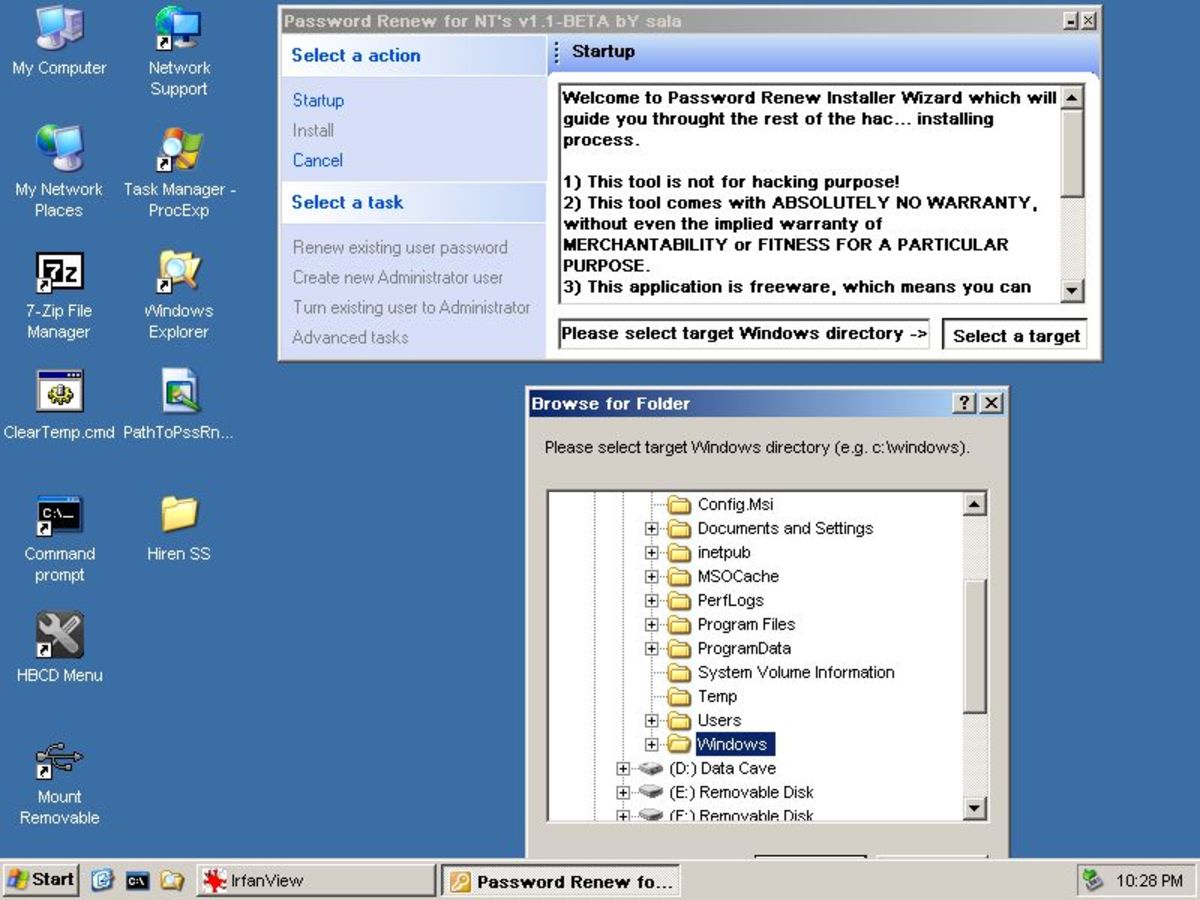
3)
Click OK, then click on the “Create new Administrator user” option
under “Select a task” on the left of the screen. Then enter the username
and password you want to use for the new account. For this tutorial
we’ll use testadmin as the username. Then click the “Install” option
under “Select an (a) action” on the left.
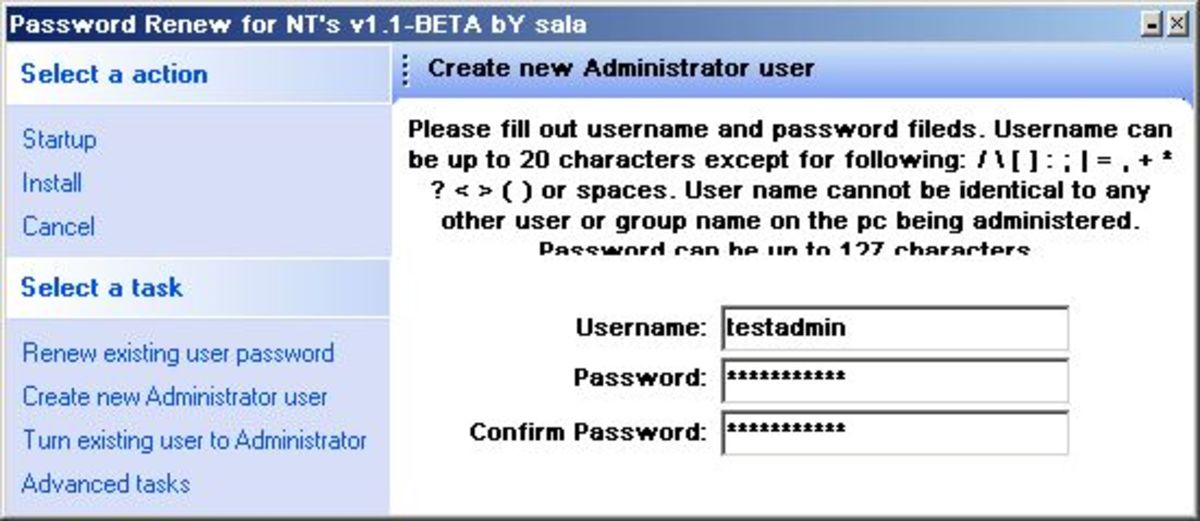
4) You will see a pop-up stating that the creating the new user is “Done.” Go ahead and click “OK”
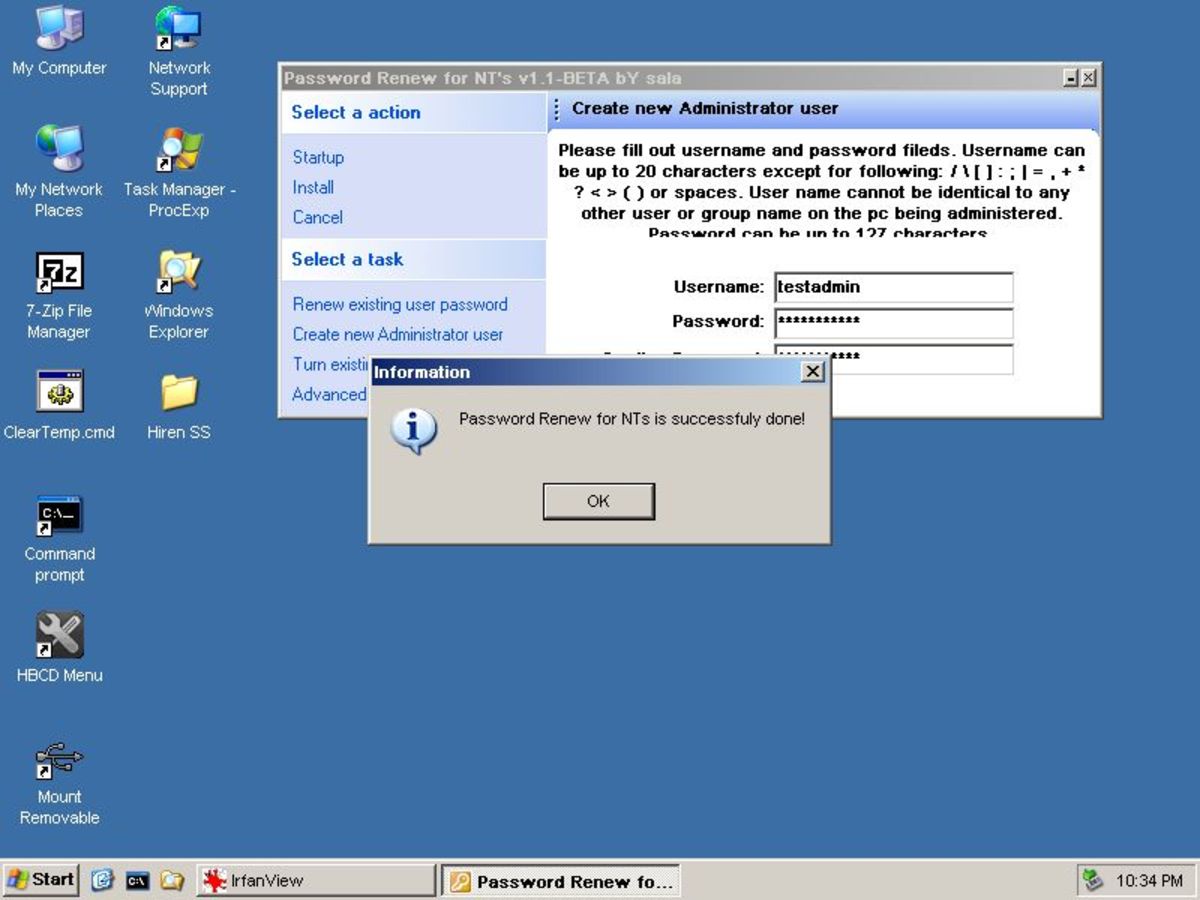
5)
Now there is one trick to this next step that you must do correctly.
DO NOT “X” OUT! You must click the “Quit” option under “Select an
action” to finish using the program and use the account just created. If
you simply click the “X” then the account will show up on the Welcome
screen but you won’t be able to logon. So make sure to click “Quit.”
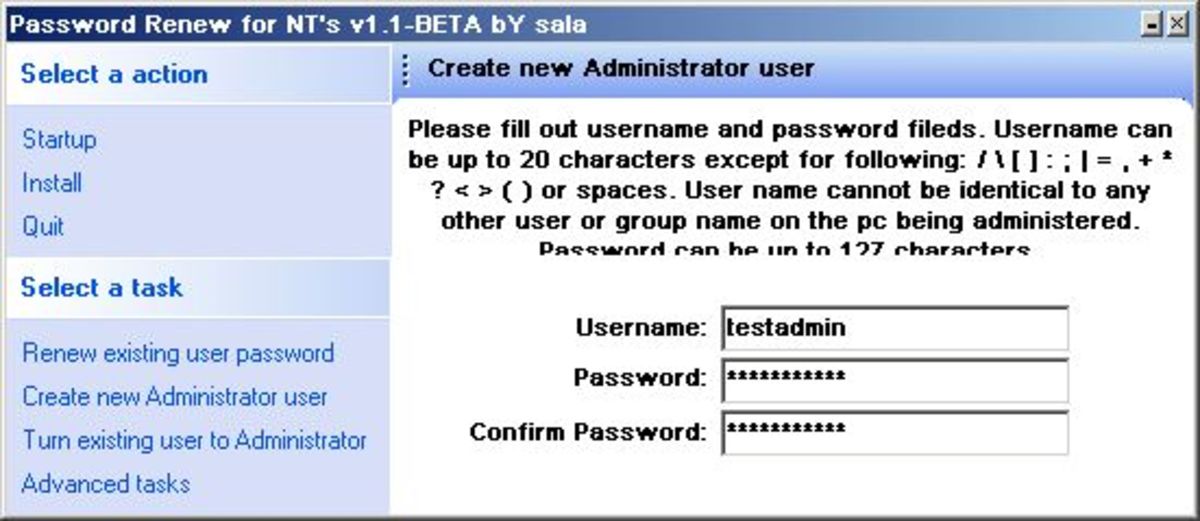
Success!!!
That’s all there is to it. Now you can eject the disc and reboot the machine. If all has gone well you will see your new account and be able to logon.Hiren’s Boot CD is among the best all purpose boot disc out there. With a large amount of antivirus apps and a huge variety of other tech tools there’s not much you can’t do with this disc. Honestly, I’ve tried most of them out there and other than the Backtrack CD there simply is no other disc I use.
Courtesy: Rome’s IT Guy - https://turbofuture.com/computers/Using-Hirens-Boot-CD-to-Create-Admin-Accounts


